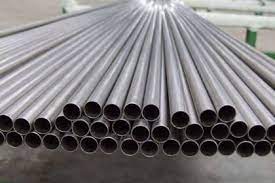HVAC systems are essential for maintaining comfortable indoor environments, whether it’s your home or workplace. However, to ensure optimal performance and longevity of these systems, preventive maintenance is key.
Importance of Preventive Maintenance
Cost Savings
Regular maintenance helps identify potential issues early on, preventing costly repairs down the line. A well-maintained HVAC system operates more efficiently, leading to lower energy bills and reduced operating costs.
Energy Efficiency
Clean filters and well-lubricated parts ensure that your HVAC system doesn’t have to work harder than necessary to maintain desired temperatures. This results in increased energy efficiency, which is not only beneficial for your wallet but also for the environment.
Extended Lifespan
Proper maintenance can significantly extend the lifespan of your HVAC system. By addressing minor issues before they escalate, you can avoid premature breakdowns and costly replacements, saving you both time and money in the long run.
Components of HVAC Systems
To understand preventive maintenance, it’s essential to know the key components of HVAC systems that require regular attention.
Air Filters
Dirty air filters restrict airflow, reducing the system’s efficiency and increasing energy consumption. Regularly replacing or cleaning air filters is crucial to maintaining indoor air quality and preventing strain on the HVAC unit.
Coils
Condenser and evaporator coils can accumulate dirt and debris over time, hindering heat exchange and reducing system efficiency. Cleaning these coils regularly helps optimize performance and prevent potential breakdowns.
Condensate Drains
Clogged condensate drains can lead to water damage and mold growth. Regular inspection and cleaning of condensate lines prevent these issues and ensure proper drainage from the system.
Thermostat Calibration
A poorly calibrated thermostat can lead to inaccurate temperature readings and inefficient operation of the HVAC system. Periodically checking and calibrating the thermostat ensures precise temperature control and energy savings.
Frequency of Maintenance Checks
The frequency of HVAC maintenance checks depends on factors such as system age, usage, and local climate conditions.
Seasonal Inspections
Bi-annual inspections before the start of the cooling and heating seasons are recommended to ensure optimal performance year-round. These inspections typically include checking refrigerant levels, inspecting electrical connections, and cleaning components.
Regular Filter Changes
Air filters should be checked monthly and replaced or cleaned as needed. Homes with pets or allergy sufferers may require more frequent filter changes to maintain indoor air quality.
DIY Maintenance Tips
While some maintenance tasks require professional expertise, there are several simple steps homeowners can take to keep their HVAC systems running smoothly.
Cleaning Air Filters
Regularly cleaning or replacing air filters improves airflow and prevents dust and debris from circulating in your home.
Clearing Debris around Units
Keep outdoor units free from debris such as leaves, grass clippings, and branches to ensure proper airflow and system efficiency.
Professional Maintenance Services
While DIY maintenance is beneficial, scheduling professional inspections and tune-ups is essential for comprehensive HVAC care.
Benefits of Professional Inspection
Experienced technicians can identify potential issues that may go unnoticed during DIY maintenance, ensuring thorough system performance and reliability.
Finding a Reliable HVAC Technician
When choosing an HVAC service provider, look for licensed and insured professionals with a track record of quality workmanship and customer satisfaction.
Common HVAC Issues
Despite regular maintenance, HVAC systems may experience common issues that require prompt attention.
Refrigerant Leaks
Low refrigerant levels can indicate a leak in the system, which compromises cooling efficiency and can lead to compressor failure if left unaddressed.
Electrical Problems
Faulty wiring or electrical components can cause system malfunctions, such as intermittent operation or complete system failure. Prompt repairs are essential to prevent safety hazards and further damage.
Airflow Obstructions
Blocked vents or ductwork restrict airflow, causing uneven heating or cooling and putting unnecessary strain on the system. Identifying and removing obstructions is crucial for maintaining consistent comfort levels.
Importance of Timely Repairs
Addressing HVAC issues promptly is vital for preventing more significant problems and ensuring uninterrupted comfort.
Avoiding Costly Breakdowns
Ignoring minor issues can lead to major system failures, resulting in costly repairs or premature replacements. Timely repairs help prevent unexpected breakdowns and associated expenses.
Ensuring Safety
Malfunctioning HVAC systems can pose safety risks, such as carbon monoxide leaks or electrical fires. Regular maintenance and prompt repairs mitigate these risks and ensure the safety of occupants.
Conclusion
HVAC preventive maintenance is essential for optimizing system performance, reducing energy costs, and extending equipment lifespan. By implementing a proactive maintenance plan and partnering with trusted professionals, homeowners can enjoy reliable comfort and peace of mind year-round.




